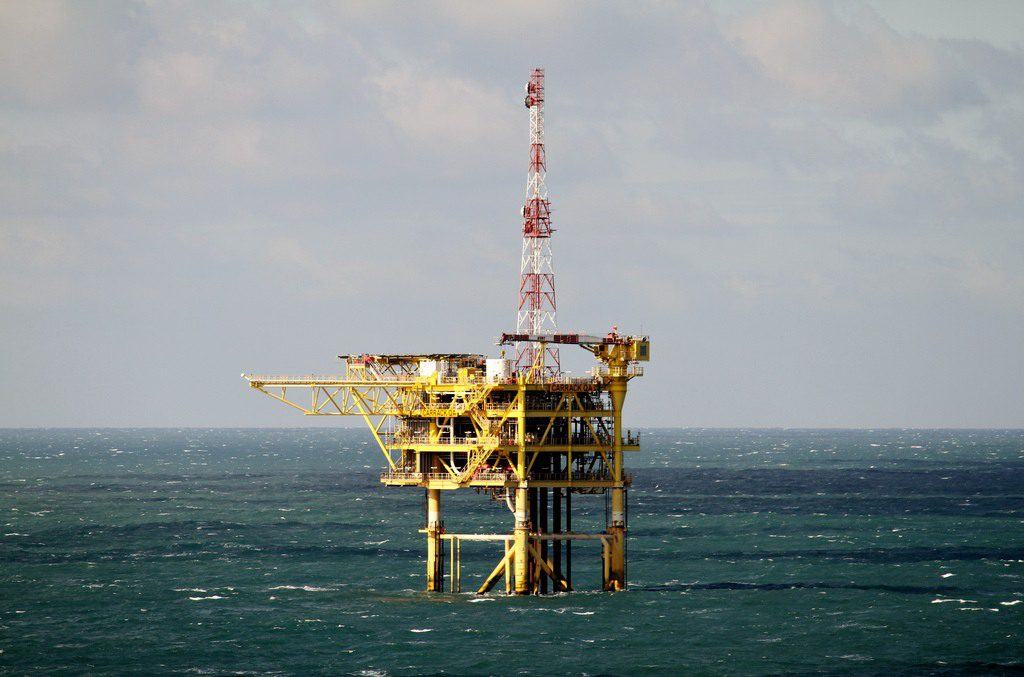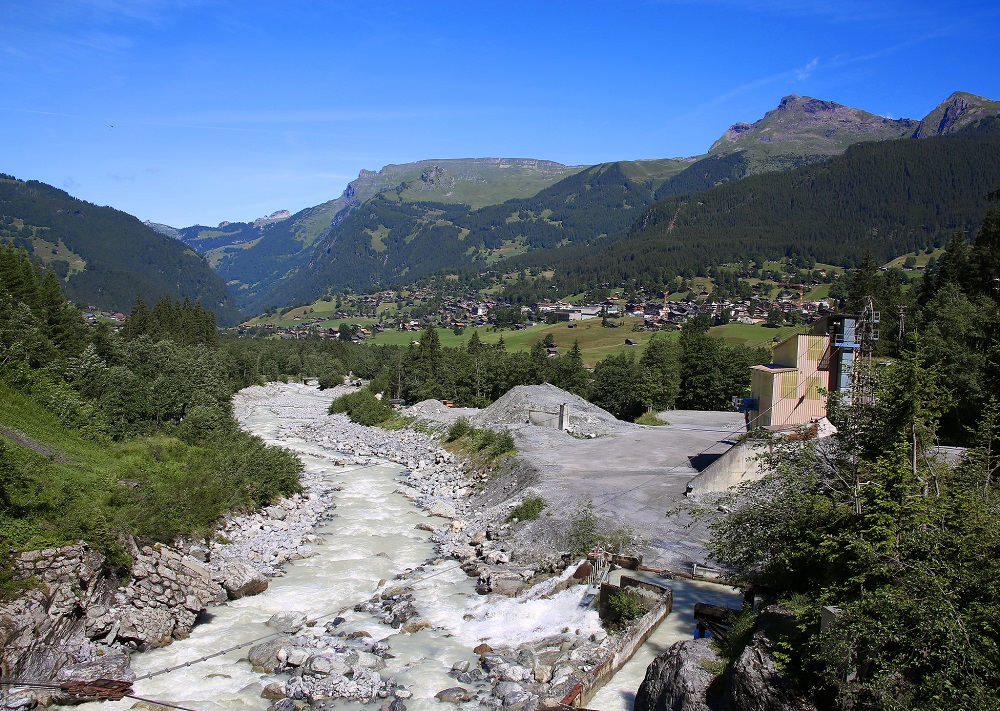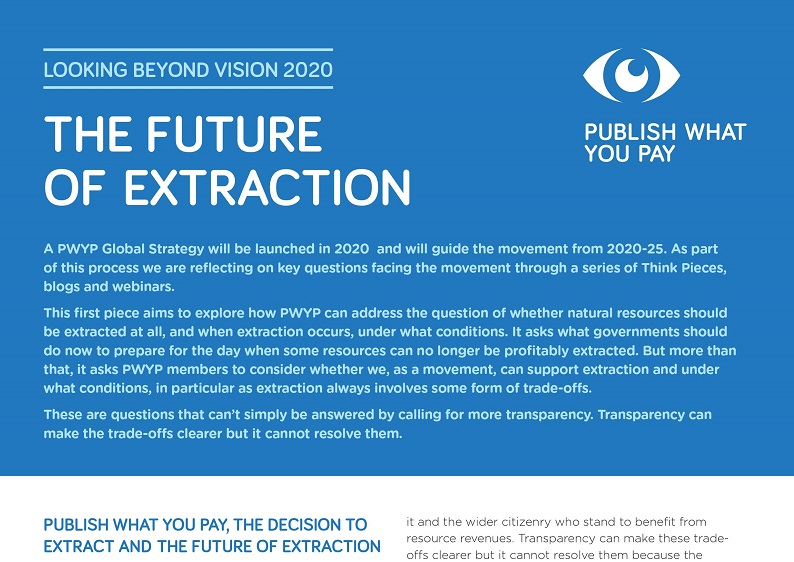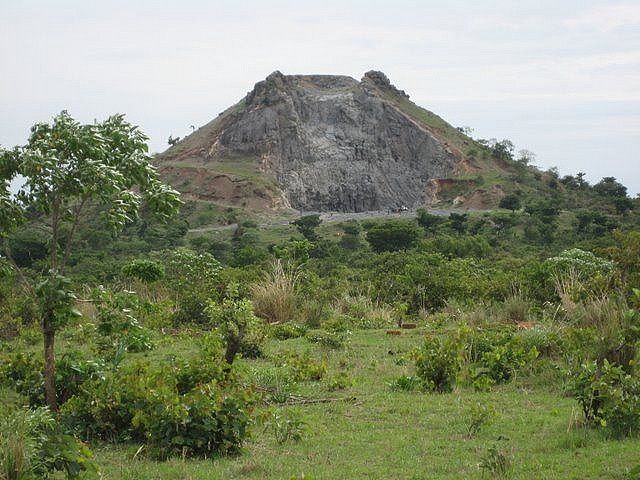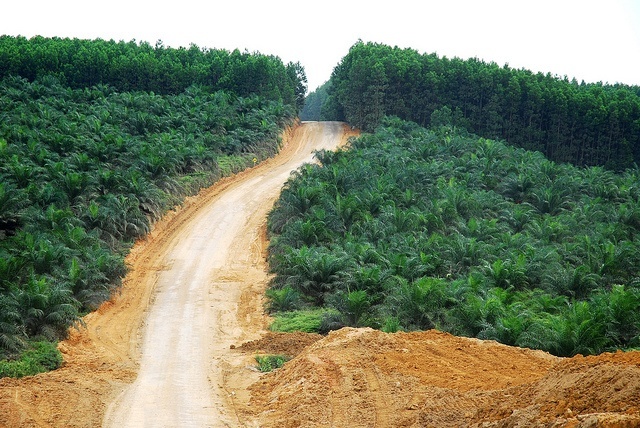News and resources
Explore our publications on a wide range of topics, to find the powerful facts, stories and approaches that underpin our work to make the extractive industry more open, accountable and participatory.
Active filters
EU Corporate Sustainability Reporting Directive Briefing
In April, the European Commission put forward a proposal for a new Corporate Sustainability Reporting Directive (CSRD). Sector-specific standards will be developed, and the European Parliament has stressed the importance of identifying high-risk sectors. In the context of the global climate crisis and the European Green Deal, Publish What You Pay (PWYP) advocates for the […]
Positioning Publish What You Pay on the energy transition
A managed decline of fossil fuel production is necessary to tackle the climate crisis and to create long-term prosperity. The transition to low carbon energy can contribute towards a resilient post-pandemic recovery, secure sustainable development, improve air quality and biodiversity, and benefit citizens. However, without a concerted and organized effort by civil society, the energy transition risks being both inadequate and unfair, undermining economic benefits and livelihoods, […]
How our global movement can fight a global crisis
Economies which rely heavily on fossil fuels for their revenues could collapse in the shift to a low carbon future. This can only be averted by an energy transition which puts people first – and PWYP can help make this happen. This week, Publish What You Pay (PWYP) adopted global positions on the energy transition. […]
Towards sustainable economies in oil dependent countries
As oil prices plunge and the Covid-19 pandemic continues to impact the world, civil society must embrace new opportunities for influencing long-term policymaking in oil-dependent countries As the COVID-19 pandemic continues, countries face the dual crises of public health emergencies and economic devastation. This twofold burden is especially challenging in oil-dependent countries, where governments are […]
Imagining PWYP climate action
Consultation with PWYP members Webinar series and consultation paper Initial discussions have started amongst a number of PWYP members to imagine what coordinated PWYP climate action could look like. So far, a small group of coalitions have outlined and discussed initial ideas for a PWYP global statement on these issues and potential areas of work […]
Breaking new ground at EITI – and looking ahead to the global conference in June
For years, PWYP members have been calling for the EITI standard to include several critical transparency measures.
The Future of Extraction
Publish What You Pay is working on a Global Strategy which will serve to guide the movement from 2020-25. As part of this process we are reflecting on key questions facing the movement, starting with this Think Piece and a webinar that will raise some key questions from the piece. Find out more about the […]
Climate change and the extractive industries – a campaign by PWYP Cameroon
The PWYP coalition in Cameroon is calling for EITI standards to include climate change By publishing an encyclical on the protection of nature protection, Pope Francis wanted to offer the world a contribution of the Church to solve the ecological crisis that humanity is currently facing. He has invited national Civil Society Organisations involved in […]
Mining and climate change: what is the impact of mining activity on climate change?
On the margins of COP21, as part of the “Climate Generations” space, civil society from Burkina Faso organised a session to address the impact of mining on climate change. The coordinator of Publish What You Pay (PWYP) in Burkina Faso, Jonas Hien, had made the trip with several coalition members to highlight this problem. Consistent […]
Climate change – a conversation we can’t just ignore
It used to be that climate change was a topic you could easily ignore. It was painted by some as the preserve of radical activists or anti-modernists who didn’t understand how things worked and perhaps even wanted to destroy the extractive industry. But such a view of the climate change debate would today be, at […]










